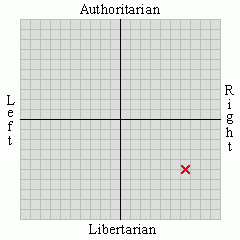Following Paul Nuttall’s failure to win the Stoke-on-Trent Central by-election, the future of UKIP as a party has been called into question. Surely, if it can’t win in one of the most pro-Brexit and working-class seats in the country, can it win anywhere? And, given that Britain has voted for Brexit, and Theresa May’s Tory government is busy implementing it, is there really any point to UKIP any more?
In reality, winning in Stoke was always going to be a challenge, and would have depended on successfully squeezing the Tory vote, which UKIP were unable to do. Paul Nuttall certainly did himself no favours by pretending to have an address in Stoke, and over-embellishing his connections with Hillsborough. But, had a lower-profile local candidate been standing, the result was actually quite creditable. UKIP retained second place, improved its share of the vote and recorded a swing towards it from Labour. Although they retained the seat, the real losers were Labour, who lost vote share, not something you expect an opposition party to be doing in one of its own safe seats in mid-term. And, of course, on the same night they lost catastrophically to the Tories in Copeland.
It may appear that the Tories have stolen UKIP’s thunder on Brexit, but how are things going to appear a few years down the line? Are they really going to curb immigration in the way they have promised? And there are other issues where the Tories are likely to prove a severe let-down. Are they going to ditch their naïve belief in “Global Warming” and implement a sensible and cost-effective energy policy? Are they going to abandon their enthusiasm for restricting lifestyle freedoms and maintaining the war on the motorist? Are they going to make a properly robust response to the growing threat of Islamist extremism? My expectation is that, on all these issues, voters who enjoyed a honeymoon with Mrs May are going to feel severely disappointed.
Under Nuttall’s leadership, UKIP have explicitly adopted a strategy of targeting disaffected Labour voters in provincial England and Wales. There’s a lot to be said for this, given how many working-class people feel completely alienated by the way Labour have concentrated on identity politics at the expense of issues such as employment and immigration. And, if UKIP falls by the wayside, where do those voters have to go? Many of them have a visceral antipathy towards voting Tory, who are seen as the party of the comfortably off and the toffs.
But, as Stoke showed, it’s important not to forget the appeal to disillusioned Tories as well. Such as me. Plenty of people feel that the current Tory Party, both under Cameron and May, is far too wet and centrist and, well, not really Conservative enough. We want lower taxes, we want political correctness given the boot, we want the Nanny State to butt out of our lives. UKIP may be an imperfect vehicle for those sentiments, but it is a much better vehicle than none. Ideally, I’d like to vote for a Delingpoleite party, but if that’s not on offer, UKIP is the best there is.
So my advice to UKIP would be not to let yourselves be disheartened and keep plodding on. Some day, the events will fall in your favour, and you need to be there to take advantage.







No comments:
Post a Comment